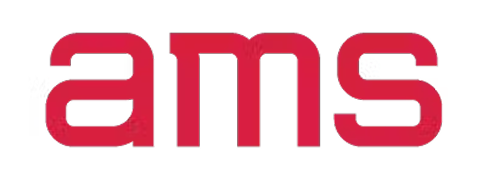Boost Performance with Data Warehouse Optimization Services
We accelerate query handling and enhance data warehouse performance, which lowers operational costs and improves analytics quality.
Let’s talk
We empower leaders:










Discover the benefits of an optimized data warehouse
With Alterdata, you will reduce operational costs and ensure a stable foundation for rapid growth. Effective data warehousing techniques, such as indexing and partitioning, are crucial for handling large datasets and optimizing performance.

Flexibility and scalability
Optimization enables easy system adaptation to changing business requirements. A scalable structure allows for handling growing data volumes without losing performance.
Parallel processing further enhances scalability and performance by dividing tasks into concurrent parts for faster execution.

Data warehouse cost optimization
By tuning the system to the specific functions of your company, you pay only for the resources you actually use, eliminating unnecessary expenses and achieving a faster return on your data investment.
Optimizing data storage not only reduces costs but also conserves storage space, enhancing overall system performance.

Faster analyses and better results
More efficient data processing allows you to respond instantly to events in your company and its environment, helping you avoid crises and seize market opportunities.

Data control and security
Implementing proper authorization and monitoring mechanisms protects data from unauthorized access and facilitates compliance with legal regulations.
Discover more benefits of Data Warehouse optimization
PorozmawiajmyOur Step-by-Step Data Warehouse Optimization Process
Knowledge and experience at every stage:
Analyze needs and define optimization goals
We identify business challenges and organizational goals, assess data sources, and evaluate the company’s architecture constraints. We propose a system that addresses your organization’s issues and supports its growth.
Additionally, we emphasize the importance of query optimization to ensure efficient data retrieval and improved performance.
Assess performance and identify query optimization bottlenecks
We collaborate with leading cloud providers such as AWS, Google Cloud, and Microsoft Azure, which allows us to choose a platform that meets operational requirements, is scalable, and stays within budget.
Understanding and improving query execution is crucial for optimizing data warehouse performance.
Design the data architecture
We create a system that meets previously identified needs. Thanks to our expertise, you can be confident that your data architecture will be stable, efficient, and ready to support your business’s dynamic growth.
Dimension tables are essential for joining with fact tables to enable efficient query execution and optimal performance through structured relationships and indexing techniques.
Implement and migrate data and systems to the cloud
The next stage is the secure implementation of the new architecture and migration of your data, data storage, and company systems to the cloud. We complete these tasks quickly, minimizing risks and ensuring the shortest possible downtime.
Support management and optimize
We provide comprehensive support so that your data architecture operates smoothly and maximally supports business operations. We monitor performance, implement improvements, and optimize costs.
Understanding and reducing data redundancy is also critical for improving data management and optimizing query performance.

Client Success Stories

We helped Celsium build a data warehouse that reduced costs by PLN 180,000 per year
We integrated data from meters, SCADA, billing, and weather systems into a single data warehouse on Google Cloud Platform. We created advanced ETL processes, data quality control mechanisms, and dashboards in Tableau to support daily analysis of heat production and consumption.
The result? Meter failures detected in one day (previously one month), operational data updated three times a day, and significant savings thanks to heat source optimization and better demand balancing.

We built a modern data warehouse in GCP for PŚO
We helped Polski Światłowód Otwarty design and implement a scalable Data Lake architecture on Google Cloud Platform. We integrated 13 data sources, created automated ELT processes, access security, and a data model that serves as a single source of truth within the organization.
The result? Independence in reporting, rapid integration of new systems, readiness for future needs, and cost savings by eliminating on-premise infrastructure.

We helped AMS leverage data from DOOH media and maintain its position as a leader in outdoor advertising
We built a modern data ecosystem for AMS, a leader in OOH and DOOH advertising. We combined data from media, internal systems, Proxi.cloud, and CitiesAI to create a unified data warehouse in BigQuery with near real-time analysis.
The result? Data-driven targeting, campaign automation, better results for customers, and a stronger market position thanks to programmatic buying based on actual reach.

We helped Tutlo automate data integration and build a modern real-time ETL
In collaboration with the Tutlo team, we designed and implemented a data integration architecture based on serverless Google Cloud components. The system enables data synchronization from dozens of sources—including CRM—with full monitoring, CI/CD automation, and readiness for further scalability.
The result? A stable and flexible data ecosystem, ready for process automation, ML projects, and dynamic development of the educational platform.

We helped FunCraft forecast ROI and optimize UA budgets in the mobile gaming industry
We implemented a comprehensive BI solution for an American game studio, integrating data from Adjust, stores, and advertising platforms into the BigQuery warehouse. We built advanced dashboards in Looker Studio and predictive ROI models that enable accurate budget decisions—even with a long return on investment cycle.
The result? The FunCraft marketing team works faster, more efficiently, and with full control over their data.
Performance and Cost Challenges Solved

Too much data, too little performance
The data volume exceeds the infrastructure’s capacity, leading to system overload and longer query processing and analysis times.

Rising infrastructure costs
Non-optimized queries and a large amount of data, including duplicates and rarely used resources, strain the budget.

Company growth requires scalability
Your infrastructure is not ready for an increase in data volume, limiting innovation and planned expansion.

Systems require cloud support
A lack of a scalable data warehouse reduces the performance of data processing solutions used in your company.
Take advantage of our know-how and experience
End-to-end execution
From identifying needs to effective implementation and ensuring optimal performance of the created system.
We optimize data warehouses and support efficient work with them. This includes optimizing SQL queries to improve query efficiency, data retrieval speed, and overall performance.
Broad tech stack
We use modern, efficient technologies selected to suit tasks and achieve the client’s goals. We build systems that fully utilize the potential of data.
Team of professionals
Our data engineers and analysts have the knowledge and experience to implement projects in various sectors. We select specialists for projects who understand the industry’s requirements.
Tailored services
We optimize data warehouses to fully solve your problems according to your expectations and goals. We consider the industry, company size, assumptions, and other important factors.
Data security
We work within your environment and do not extract any data from it, ensuring its security. You decide which information we can access during our work.
Data team as a service
You receive support from a dedicated team of experts, available whenever you need them. A flexible billing model ensures you only pay for the work performed.
Streamline your data warehouse
Tech stack: the foundation of
our work
Discover the tools and technologies that power the solutions created by Alterdata.

Google Cloud Storage enables data storage in the cloud and provides high performance, offering flexible management of large datasets. It ensures easy data access and supports advanced analytics.

Azure Data Lake Storage is a service for storing and analyzing structured and unstructured data in the cloud, created by Microsoft. Data Lake Storage is scalable and supports various data formats.

Amazon S3 is a cloud service for securely storing data with virtually unlimited scalability. It is efficient, ensures consistency, and provides easy access to data.

Databricks is a cloud-based analytics platform that combines data engineering, data analysis, machine learning, and predictive models. It processes large datasets with high efficiency.

Microsoft Fabric is an integrated analytics environment that combines various tools such as Power BI, Data Factory, and Synapse. The platform supports the entire data lifecycle, including integration, processing, analysis, and visualization of results.

Google BigLake is a service that combines the features of both data warehouses and data lakes, making it easier to manage data in various formats and locations. It also allows processing large datasets without the need to move them between systems.

Google Cloud Dataflow is a data processing service based on Apache Beam. It supports distributed data processing in real-time and advanced analytics.

Azure Data Factory is a cloud-based data integration service that automates data flows and orchestrates processing tasks. It enables seamless integration of data from both cloud and on-premises sources for processing within a single environment.

Apache Kafka processes real-time data streams and supports the management of large volumes of data from various sources. It enables the analysis of events immediately after they occur.

Pub/Sub is used for messaging between applications, real-time data stream processing, analysis, and message queue creation. It integrates well with microservices and event-driven architectures (EDA).
Google Cloud Run supports containerized applications in a scalable and automated way, optimizing costs and resources. It allows flexible and efficient management of cloud applications, reducing the workload.

Azure Functions is another serverless solution that runs code in response to events, eliminating the need for server management. Its other advantages include the ability to automate processes and integrate various services.

AWS Lambda is an event-driven, serverless Function as a Service (FaaS) that enables automatic execution of code in response to events. It allows running applications without server infrastructure.

Azure App Service is a cloud platform used for running web and mobile applications. It offers automatic resource scaling and integration with DevOps tools (e.g., GitHub, Azure DevOps).

Snowflake is a platform that enables the storage, processing, and analysis of large datasets in the cloud. It is easily scalable, efficient, and ensures consistency as well as easy access to data.

Amazon Redshift is a cloud data warehouse that enables fast processing and analysis of large datasets. Redshift also offers the creation of complex analyses and real-time data reporting.
BigQuery is a scalable data analysis platform from Google Cloud. It enables fast processing of large datasets, analytics, and advanced reporting. It simplifies data access through integration with various data sources.

Azure Synapse Analytics is a platform that combines data warehousing, big data processing, and real-time analytics. It enables complex analyses on large volumes of data.

Data Build Tool simplifies data transformation and modeling directly in databases. It allows creating complex structures, automating processes, and managing data models in SQL.

Dataform is part of the Google Cloud Platform, automating data transformation in BigQuery using SQL query language. It supports serverless data stream orchestration and enables collaborative work with data.
Pandas is a data structure and analytical tool library in Python. It is useful for data manipulation and analysis. Pandas is used particularly in statistics and machine learning.

PySpark is an API for Apache Spark that allows processing large amounts of data in a distributed environment, in real-time. This tool is easy to use and versatile in its functionality.

Looker Studio is a tool used for exploring and advanced data visualization from various sources, in the form of clear reports, charts, and interactive dashboards. It facilitates data sharing and supports simultaneous collaboration among multiple users, without the need for coding.

Tableau, an application from Salesforce, is a versatile tool for data analysis and visualization, ideal for those seeking intuitive solutions. It is valued for its visualizations of spatial and geographical data, quick trend identification, and data analysis accuracy.

Power BI, Microsoft’s Business Intelligence platform, efficiently transforms large volumes of data into clear, interactive dashboards and accessible reports. It easily integrates with various data sources and monitors KPIs in real-time.

Looker is a cloud-based Business Intelligence and data analytics platform that enables data exploration, sharing, and visualization while supporting decision-making processes. Looker also leverages machine learning to automate processes and generate predictions.
Terraform is an open-source tool that allows for infrastructure management as code, as well as the automatic creation and updating of cloud resources. It supports efficient infrastructure control, minimizes the risk of errors, and ensures transparency and repeatability of processes.

GCP Workflows automates workflows in the cloud and simplifies the management of processes connecting Google Cloud services. This tool saves time by avoiding the duplication of tasks, improves work quality by eliminating errors, and enables efficient resource management.

Apache Airflow manages workflows, enabling scheduling, monitoring, and automation of ETL processes and other analytical tasks. It also provides access to the status of completed and ongoing tasks, as well as insights into their execution logs.
Rundeck is an open-source automation tool that enables scheduling, managing, and executing tasks on servers. It allows for quick response to events and supports the optimization of administrative tasks.

Python is a programming language, also used for machine learning, with libraries dedicated to machine learning (e.g., TensorFlow and scikit-learn). It is used for creating and testing machine learning models.

BigQuery ML allows the creation of machine learning models directly within Google’s data warehouse using only SQL. It provides a fast time-to-market, is cost-effective, and enables rapid iterative work.

R is a programming language primarily used for statistical calculations, data analysis, and visualization, but it also has modules for training and testing machine learning models. It enables rapid prototyping and deployment of machine learning.

Vertex AI is used for deploying, testing, and managing machine learning models. It also includes pre-built models prepared and trained by Google, such as Gemini. Vertex AI also supports custom models from TensorFlow, PyTorch, and other popular frameworks.

Bartosz Szymański
Data Strategy and Customer Relations Director
Your data holds potential.
Ask us how to unlock it
FAQ
By what percentage can Alterdata reduce the costs of our data warehouse?

Depending on current costs and system efficiency, Alterdata can reduce data warehouse costs by 30-50%, while ensuring full functionality and performance.
How can I measure the effectiveness of cost optimization for my data warehouse?

You can evaluate the effectiveness of cost optimization by observing a reduction in operational costs. You will also notice better utilization of your cloud resources, improved query performance, reduced data processing time, and fewer unnecessary operations thanks to monitoring and load analysis.
What processes are involved in data warehouse optimization?

The most important part of this process is improving query performance and monitoring them to achieve cost transparency in data warehouse operations. It is also essential to identify bottlenecks caused by errors in data modeling or indexing, or inefficient ETL/ELT processes.
Should only large organizations optimize their data warehouse?

No, optimization benefits companies regardless of size or industry. It provides faster access to key information, smoother analyses, and better decision-making insights, directly translating into greater efficiency and a competitive advantage.
Do I need any specific expertise in my organization for this service?

You don’t need specialized expertise within your organization. Our team of experts will handle the optimization comprehensively, supporting your company at every stage of the process.
Does the external data engineer have access to all the information in our company?

We ensure complete data security. Access to information is strictly controlled, and our experts only have access to data necessary for the project, adhering to the highest protection standards. We do not extract data; it is stored exclusively on the client’s side.

























